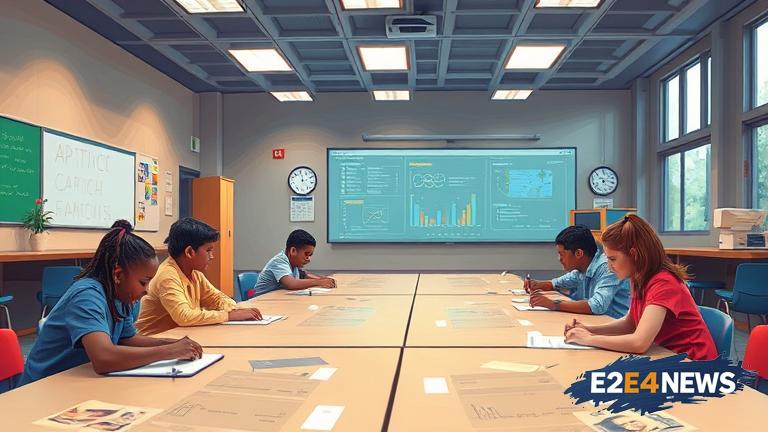A new school in Charlotte-Raleigh, NC, has been making waves with its innovative approach to education, incorporating artificial intelligence (AI) into its curriculum. The Alpha school, which opened its doors recently, boasts a cutting-edge AI-powered learning system that promises to revolutionize the way students learn. However, not everyone is convinced of the school’s effectiveness, with some experts questioning the potential consequences of relying too heavily on AI in education. One such expert, a renowned educator and researcher, has expressed concerns about the lack of human interaction and the potential for AI to exacerbate existing inequalities in the education system. The expert argues that while AI can be a useful tool in certain contexts, it is not a replacement for human teachers and the social interactions that are essential to a well-rounded education. Furthermore, the expert points out that the Alpha school’s AI-powered system may not be equipped to handle the complexities and nuances of human learning, potentially leading to a lack of depth and understanding in students. Additionally, the expert raises concerns about the potential for AI to perpetuate biases and discrimination, particularly if the algorithms used are not carefully designed and tested. The Alpha school’s administrators, however, remain confident in their approach, citing the potential benefits of AI in personalizing learning and improving student outcomes. They argue that the AI-powered system allows for real-time feedback and assessment, enabling teachers to tailor their instruction to meet the individual needs of each student. Moreover, the school’s administrators claim that the AI system is designed to be transparent and fair, with built-in safeguards to prevent biases and ensure that all students have an equal opportunity to succeed. Despite these assurances, the expert remains skeptical, pointing out that the long-term effects of AI on education are still not fully understood and that more research is needed to determine the efficacy of such approaches. The debate surrounding the Alpha school’s AI-powered system highlights the ongoing tension between technology and traditional teaching methods, with some arguing that AI has the potential to enhance education and others warning of its potential risks. As the education sector continues to evolve, it is likely that we will see more schools and institutions experimenting with AI-powered learning systems, raising important questions about the role of technology in education and the potential consequences for students and society as a whole. The Alpha school’s experiment with AI will undoubtedly be closely watched, with many hoping that it will provide valuable insights into the potential benefits and drawbacks of such approaches. In the meantime, educators, policymakers, and parents must carefully consider the implications of AI in education, weighing the potential benefits against the potential risks and ensuring that any new approaches are carefully designed and tested to prioritize the needs and well-being of students. The use of AI in education also raises important questions about the future of work and the skills that students will need to succeed in an increasingly automated economy. As AI assumes more routine and repetitive tasks, students will need to develop skills that are complementary to AI, such as creativity, critical thinking, and problem-solving. The Alpha school’s AI-powered system may be well-intentioned, but it is unclear whether it is equipped to provide students with the skills and knowledge they need to thrive in a rapidly changing world. Ultimately, the success or failure of the Alpha school’s AI-powered system will depend on a variety of factors, including the quality of the AI algorithms used, the level of support and training provided to teachers, and the ability of the school to address the concerns and criticisms of experts and stakeholders. As the education sector continues to grapple with the challenges and opportunities presented by AI, it is essential that we prioritize the needs and well-being of students, ensuring that any new approaches are carefully designed and tested to promote equity, inclusivity, and excellence in education.
